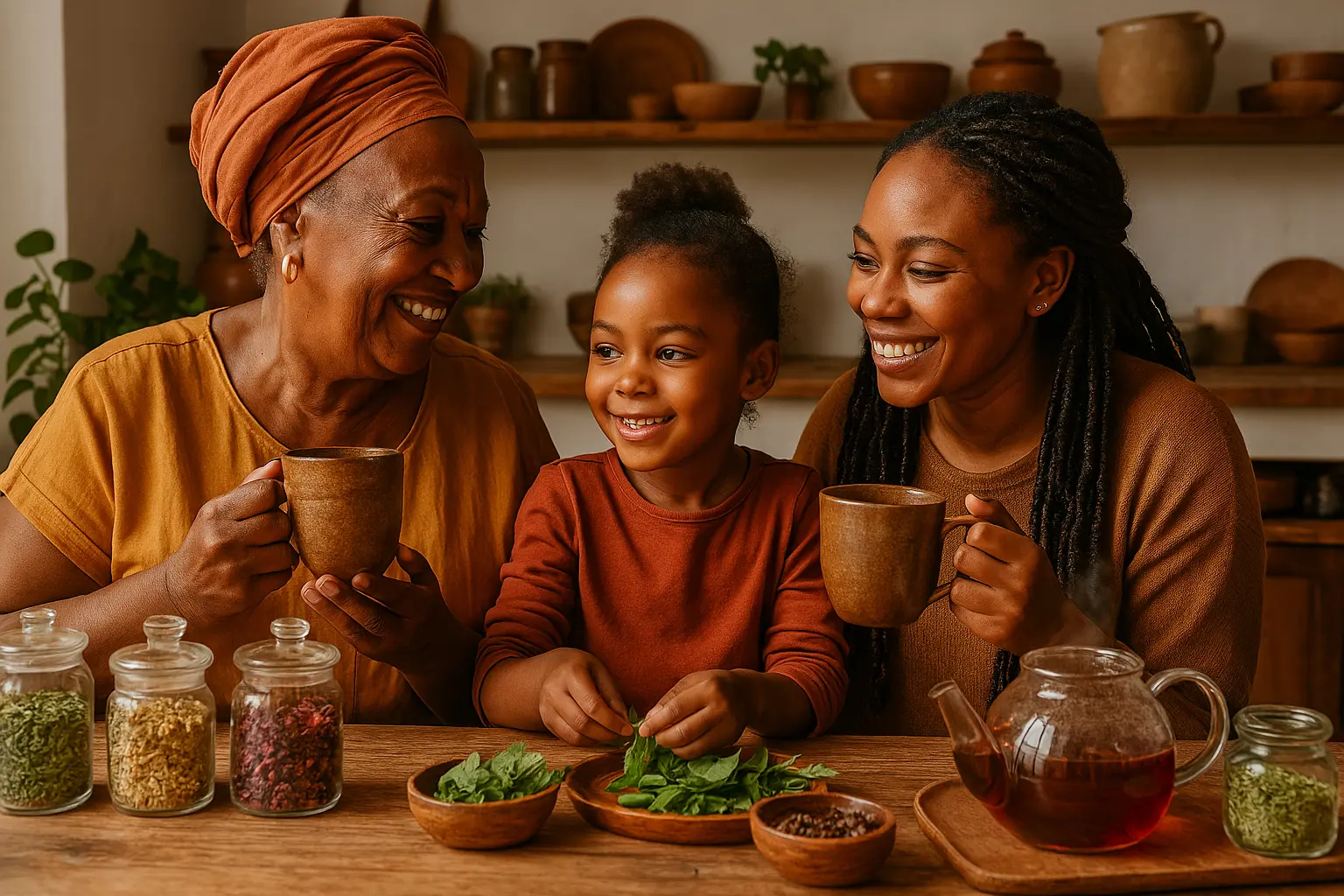Unwritten Pharmacies: The Herbal Wisdom of African Women
Long before herbs appeared in Western wellness catalogs or trendy Instagram recipes, they lived in the hands of African women. Not just as remedies but as inheritances.
In homes without prescription pads, women across the continent used hibiscus for blood cleansing, lemongrass for colds, clove for immunity, and rooibos to calm crying infants. These herbs were not trends. They were life-saving, spirit-strengthening tools passed from grandmother to granddaughter.
At Tropace, our entire brand is a reflection of this wisdom.
Healing Was Never Just Physical
In African cultures, wellness was never separated from community or ceremony. A postpartum woman would receive stews, massages and steams. A child with a cough would be wrapped and given ginger tea. A family welcoming guests would offer hibiscus drinks not just for taste but for protection.
These practices formed a kind of oral pharmacology: a network of mothers, aunties, and elders who learned what to use, when to use it, and how to prepare it.
It is this knowledge that Tropace captures in every blend not diluted, not gentrified, but preserved.
What Modern Wellness Misses
Today’s wellness world often strips herbs of context. It focuses on benefits without honoring their roots. Fenugreek is “good for milk supply,” but who used it first? Hibiscus “lowers blood pressure,” but which people passed down the knowledge?
Tropace names our herbs and honors their originators.
We choose ingredients not just for effect but for their relationship to generational knowledge and Afrocentric value systems.
Tea as Memory and Medicine
When you drink a Tropace blend, you’re drinking more than leaves. You’re engaging in a long-standing tradition where women were the herbalists, healers, and protectors of the home.
And we believe it’s time that story is told proudly.
Experience African herbal intelligence, distilled in every cup.
Explore the Tropace Collection

